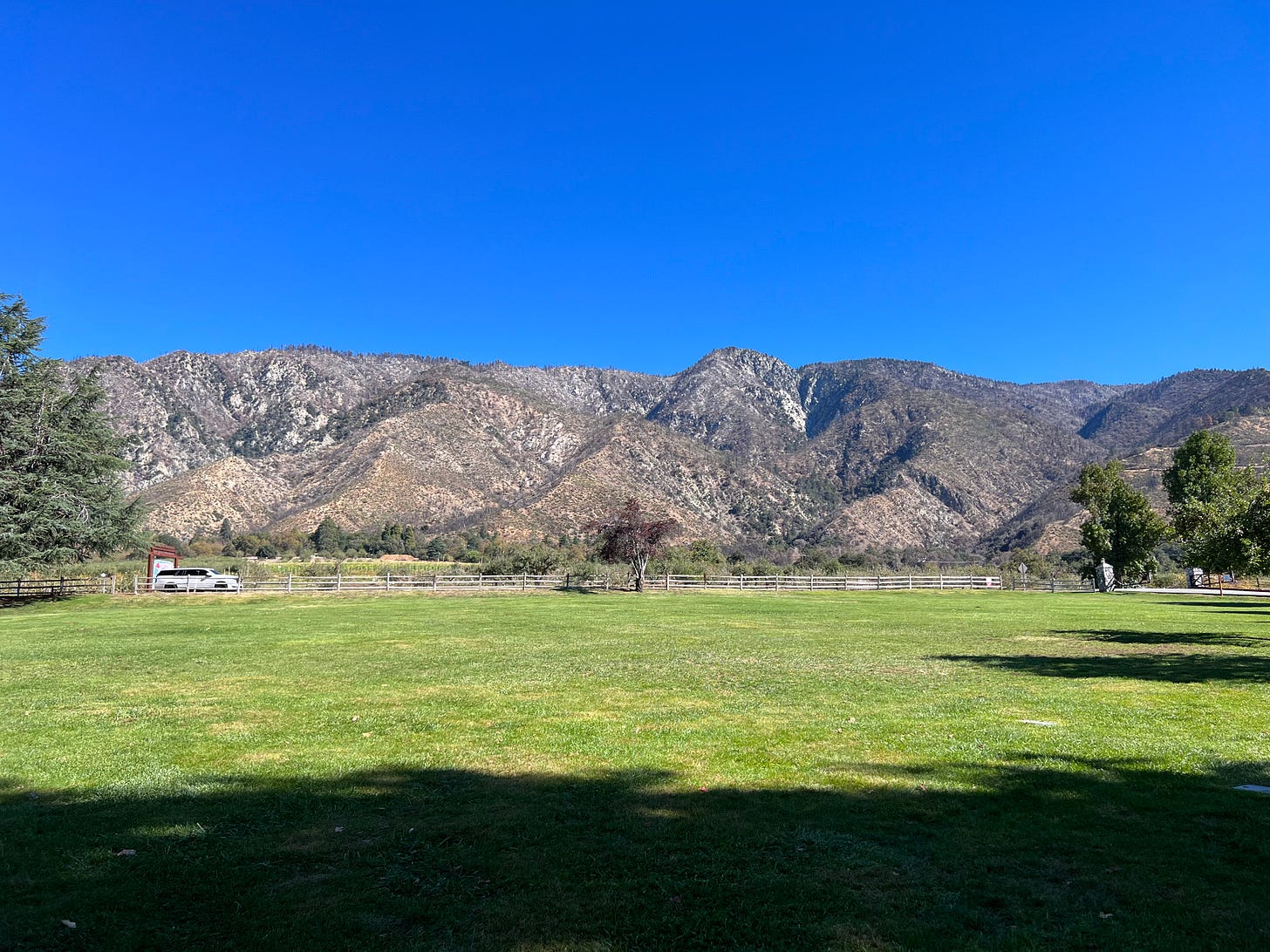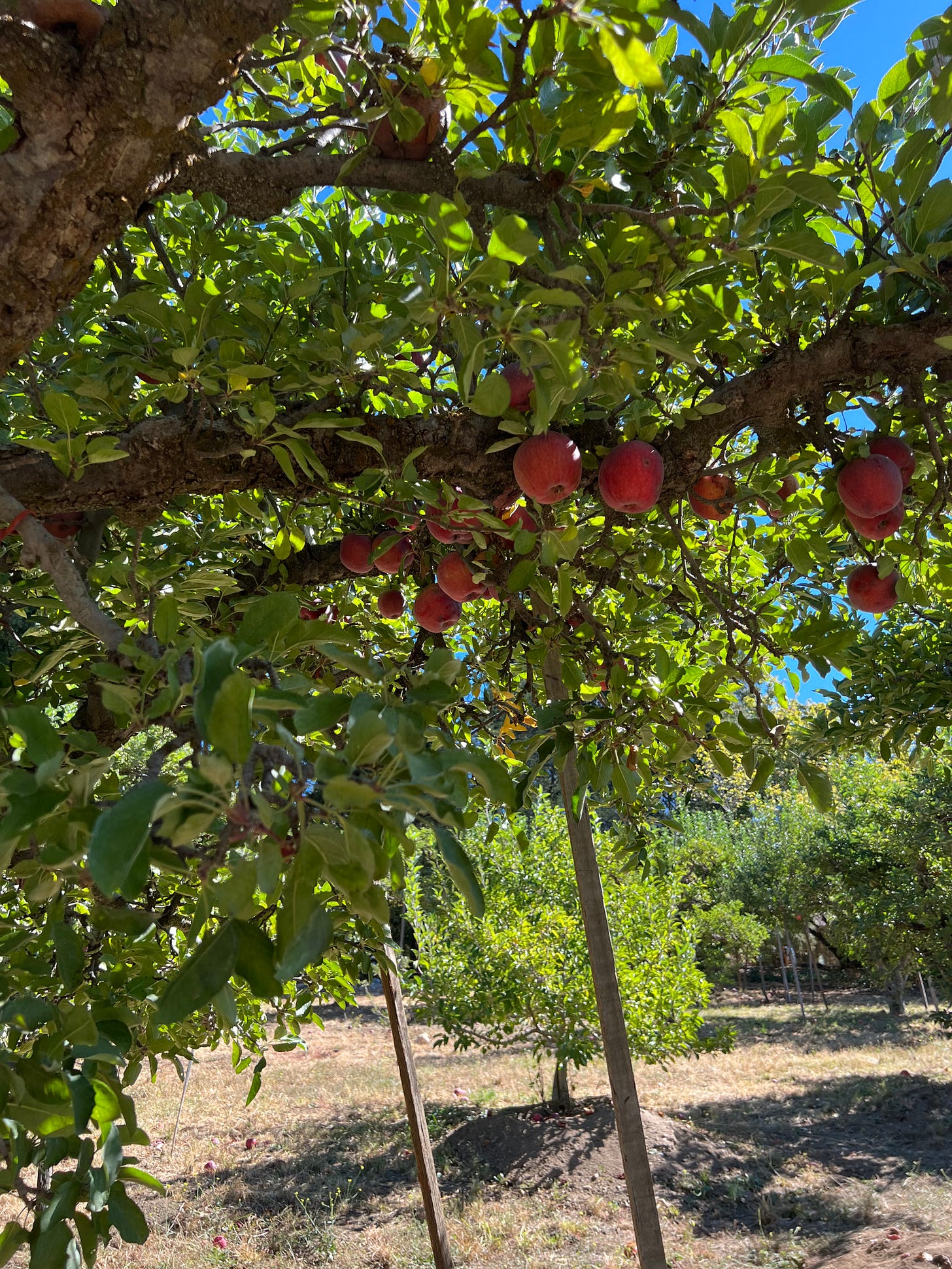A Bicycle for the Mind
Using technology like Steve Jobs intended

As I was listening to Andy Crouch read the audiobook version of his latest book The Life We’re Looking For last week, I was captivated by an idea that he shared from Steve Jobs: the metaphor of the computer as a bicycle for the mind. As a relatively big Apple fanboy, I was surprised I hadn’t heard about it before. I have been thinking ever since about how the analogy of a bicycle might help to inform the way we use our technology.
The quote from Jobs is part of a video interview, where a young Steve shares his vision for the computer explaining it as “the equivalent of a bicycle for our minds.” As an avid cyclist, Jobs’ obsession with the bicycle caught my interest.
What he marveled at was highlighted in a piece published in Scientific American in the 1970s showing that compared to many other types of transportation, humans are quite inefficient. However, leveraging the invention of a bicycle, humans can easily improve by nearly an order of magnitude and beat out their competition. After digging up the article, I found the original figure that Jobs’ referred to and replotted it. While Jobs doesn’t expound on his wonder in much detail in the short interview clip, Crouch digs a little deeper and draws out what I think are some helpful parallels.
Steve’s bicycle has a flat
One of the most amazing yet dangerous things about our smartphones and computers is the breadth of difficult tasks they make easy. Even Jobs failed to truly understand the way that the smartphone would grow to so fully enrapture us – he saw it primarily as a phone, a concept that is likely laughable to anyone under the age of 25 today.
But does the massive flexibility and always everywhere of our devices have a downside? Amazon will deliver practically anything to our doorsteps in two days or less. Spotify puts nearly the entire world’s supply of music at our fingertips. Crouch highlights this as power without effort.
One of the magical things about a bicycle is that like a musical instrument, it expands our human capabilities but not without effort. This means that we remain grounded while using them, and ultimately, the experience of using them is aligned with our flourishing. Unfortunately, as we’re all too aware, that’s not always the case with our devices.
While I’d encourage you to read the entirety of Crouch’s book to hear the way he draws out particular themes in greater depth, here are a few thoughts that resonated with me.
1. Use technology to expand our humanity, not replace it
There is no doubt that the conveniences of modern life are a marvel. The existence of simple technologies like dishwashers, robot vacuums, and washing machines are good examples of devices that can make our lives easier and free up time. However, we should be intentional about what we do with the time that we gain. If we just use the time we free up from doing dishes to sit and scroll on our smartphones, we might be better off going back to washing dishes by hand with our family or roommates.
2. Beware of technology that gives us power without effort
Technology that gives us power without effort has dangerous potential. Crouch highlights the impact of the power that our cars enable with the minimal effort needed to push the accelerator. While they have many upsides, our cars also carry serious downsides as we race around our neighborhoods at speeds above the posted limits simply because it is easy. This is reflected in the statistics as automobile accidents contribute to a sizable percentage of emergency room visits and fatalities each year. While I’m not suggesting that we give up our cars, we should consider the way that the ease of pushing down the accelerator with its accompanying felt sense of power shapes us.
3. Pay attention to how technology disrupts or supports flow
Flow or being “in the zone,” a concept defined by Mihaly Csikszentmihályi, was first introduced to me as part of a workshop I did with the Stanford Life Design Lab in the 2020-2021 academic year. Flow is a way to describe times when we lose ourselves in our work and don’t notice the time flying by. Identifying and maximizing the amount of flow that we feel in our work helps us to experience productivity and enjoyment in our work.
In many ways, the way that we use our devices frustrates flow, interrupting us with push notifications and making it all too easy to switch windows and check our email or catch up on the latest news. But we can use technology intentionally. The Kindle is one of my personal favorite examples, a device that is intentionally limited in its capabilities and designed to do one, and only one, thing well – read a book!
Looking for bicycles
This week, would you join me in looking for technologies like the bicycle that enable us to expand our abilities but also require us to put forth effort? And, if you own a bike, take it out for a ride – I’m sure you won’t regret it.
The Book Nook
It is perhaps no surprise that this week the book I’m thinking about is The Life We’re Looking For by Andy Crouch. This was a relatively quick listen with some incisive tidbits. In it Andy writes a lot about the challenge of battling Mammon – our obsession with pursuing control of our lives and abundance without effort.
One of the best things about Andy’s writing is that he writes with his audience in mind – disciplining himself to be concise and coherent. This book is no different and weaves together a wide range of topics into an engaging narrative, inviting his readers to explore and consider how what he is sharing connects with their lives. If you, like me, are curious about finding a way to leverage technology for its many opportunities to support human flourishing while taking a sober view of its threats, I think you’ll enjoy this book.
The Professor Is In
The beginning of this week was a welcome break to the semester with a two-day fall break. I was glad for a chance to spend some more intentional time with the family and get away from work in order to recharge and reorient myself before jumping in for the second half of the semester!
Leisure Line
This weekend after some much needed rain we decided to take a hike to Millard Falls, an easy, family-friendly trail that we enjoy hiking together. The rain meant that there was more water running than I had seen earlier this summer and the waterfall, while far from roaring, was a steady stream.
Still Life
Again taking advantage of fall break we made a trip out to Oak Glen to do some apple picking. A nice drive and another reminder of the wide range of activities we are privileged to have nearby in Los Angeles.


![The Life We're Looking For: Reclaiming Relationship in a Technological World by [Andy Crouch] The Life We're Looking For: Reclaiming Relationship in a Technological World by [Andy Crouch]](https://substackcdn.com/image/fetch/$s_!mRif!,w_1456,c_limit,f_auto,q_auto:good,fl_progressive:steep/https%3A%2F%2Fbucketeer-e05bbc84-baa3-437e-9518-adb32be77984.s3.amazonaws.com%2Fpublic%2Fimages%2F27487f71-28ec-4067-8457-f8fbe123482e_331x500.jpeg)


